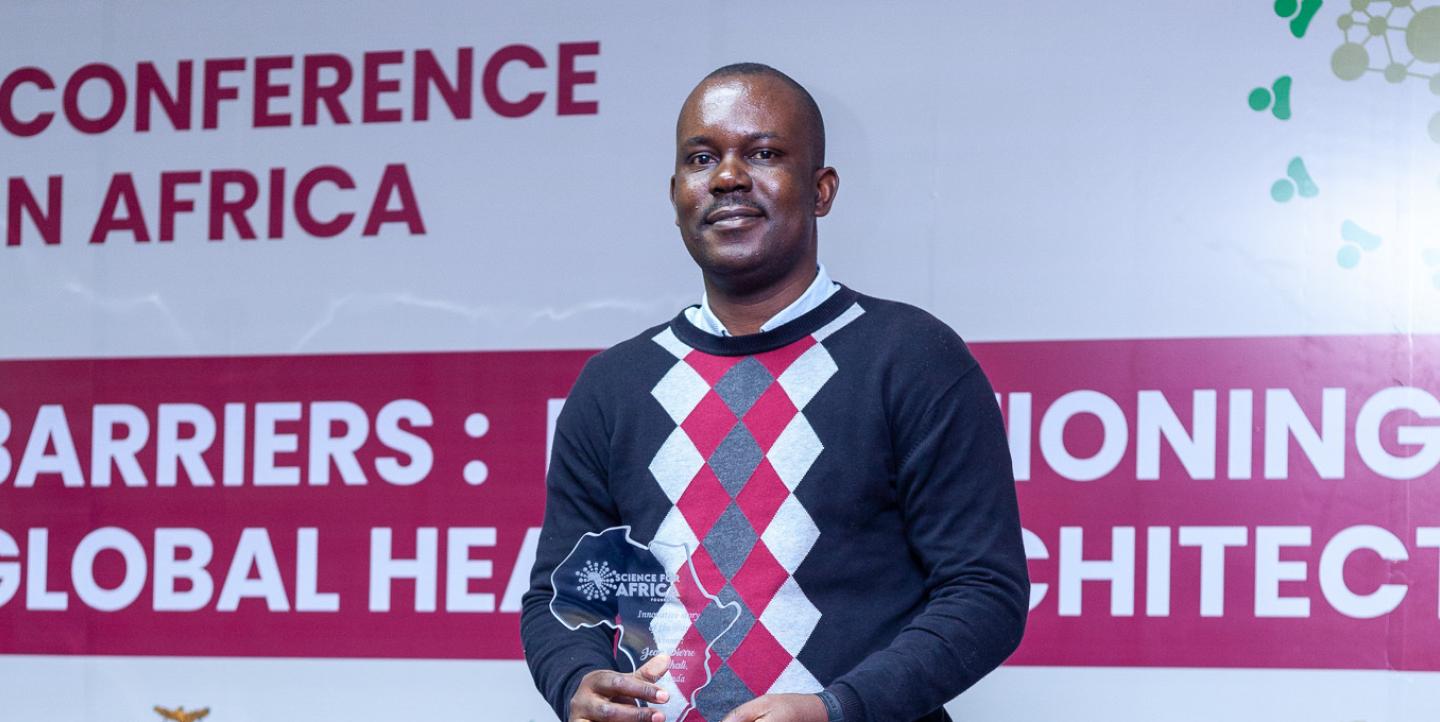Rwandan business and science journalist Jean-Pierre Afadhali long enjoyed reading newspapers and magazines – he liked to be aware about what was going on in the world.
This is what drew him to journalism. He wanted to raise others’ awareness, too: “I just wanted to be informed and inform people like friends, classmates and others.”
Afadhali started his career working for The East African and Rwanda Today, both publications of The Nation Media Group, before later becoming a full-time special correspondent. Today, he is based in Nairobi, Kenya, where he writes for publications such as Vijana FM and Pan African Visions, to bring compelling African stories to a global audience.
Afadhali has also contributed to reporting in the New York Times, and trained at BBC Monitoring, where he tracked developments in media, translated content, and contributed to breaking news coverage, among other tasks.
Last year, Afadhali’s feature on Rwanda’s ban on single-use plastic won for most innovative story of the year at the inaugural Africa Science Journalism Awards.
I spoke with Afadhali about his career as a freelance journalist, the challenges and successes he has faced, and his commitment to producing impactful journalism and raising global awareness about Africa.
Could you describe your reporting that won for most innovative story of the year at the 2023 Africa Science Journalism Awards?
Last year, the Science for Africa Foundation hosted an event in [Lusaka], Zambia, where I submitted my story on plastic pollution in Rwanda.
Initially, I was asked [by the Kenyan environmental organization, The Flipflopi,] if I could do a story about the [single-use plastics] ban, because people wanted to know how [Rwanda] fought plastic pollution. I wrote about it because Rwanda was one of the few countries banning single-use plastic in Africa.
Working on the story was a bit challenging due to COVID lockdowns, making it hard to meet some sources remotely. However, I managed to work on the story, using graphics and data to illustrate the issues.
I have always wanted to win an award. I have previously been a finalist in international competitions, but this was special for me after trying in various competitions.
What have been some of your major challenges and successes as a journalist?
Access to information has been a major challenge, and sometimes interviewing people who are not willing to share information, and reaching sources, has been challenging. Also, with COVID-19, it was not easy to move in the field to talk to people who were in distress.
Some of my successes came from my stories making a publication's front pages, [for instance]in The East African. I also did a descriptive study on mining and how global prices [of minerals] affected local companies and employees [in Rwanda]. That was one of the biggest stories I did, along with stories I covered about climate change in recent years.
Many of [my] stories on technology, business, and others have been shared and trended on social media. Seeing my stories [shared] is also one of my successes.
Last year's award was also my top achievement because [the award was granted] throughout Africa. That was one of the top achievements in my career; it was a breakthrough moment in science journalism [for me].
What advice would you give other journalists?
Just having consistency and persistence to try not to give up. Also, seek advice from senior journalists, editors or managers for publications, and fellow journalists. Understand that asking colleagues, senior journalists, and advisors [for their advice] can help overcome those challenges.
I would also say to keep innovating and applying for different fellowships and training. When I applied, I got different grants that helped to cover big stories. Because stories require funding, that’s how I balance those challenges. [For instance], I was able to get three or four grants from [a single] organization.
How has IJNet helped your career?
I’ve been using IJNet for many years – for eight or 10 years, [and] I received many different opportunities from IJNet.
Once, I got travel funding to cover a conference in Uganda. I also participated in [a science competition] featured on IJNet for African writers in 2015. I love to read the articles that are published on the website and learn from those experiences.
What goals do you have, and what projects are you excited about in the future?
I’m still interested in covering African stories and telling African stories to the global audience, stories from East Africa. I want to inform global audiences through my online stories so they can read my articles and be inspired.
One of my stories has recently been translated into different languages, such as Spanish and French, by Global Voices. It’s good to see other people’s perspectives on the stories you’re covering. I hope it can help people in East Africa and globally know what’s happening in Africa, in places such as Rwanda, Kenya [and] Uganda.
I hope that my stories keep improving and that I keep learning to become a better journalist and inform others to make good decisions based on facts in my reporting.
Photo by Jean-Pierre Afadhali.


